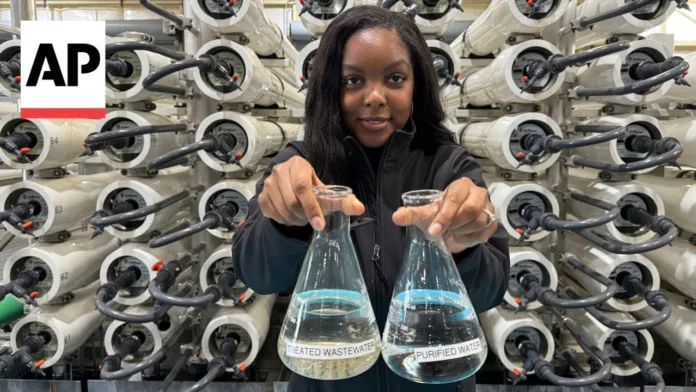Recycled wastewater to flow straight from treatment to taps in the golden state
In a pioneering move, California regulators have given the green light for the direct use of treated sewage in the state’s drinking water supply. While the practice of recycling wastewater is not new in California, this landmark decision allows treated sewage to bypass other applications, such as irrigation or industrial use, and be integrated directly into the drinking water system.
The decision follows years of reviews by independent scientific panels and comes as California grapples with recurring droughts. Wastewater, which has been recycled for various purposes like making snow and irrigating crops, will now undergo additional treatment to meet rigorous safety and quality standards before being channeled back into the drinking water system.
Jennifer West, managing director of WateReuse California, emphasized the importance of maximizing water usage in the drought-prone state, stating, “Water is so precious in California. It is important that we use it more than once.”
To ensure public acceptance, the rules mandate that the recycled water meets the same high-quality standards as traditional drinking water. The treated wastewater must be free of pathogens and viruses, and minerals that enhance the taste of fresh water will be reintroduced.
Darrin Polhemus, deputy director of the division of drinking water for the California Water Resources Control Board, asserted that the recycled water would meet or exceed current drinking water quality standards. Joaquin Esquivel, chair of the Water Resources Control Board, reassured the public, saying, “Anyone out there taking drinking water downstream from a wastewater treatment plant discharge — which, I promise you, you’re all doing — is already drinking toilet to tap.”
While acknowledging the cost and time associated with building the necessary treatment facilities, the state’s larger, well-funded cities are expected to spearhead the initial implementation of this initiative. Major water agencies, including the Metropolitan Water District of Southern California, plan to invest in large-scale water recycling plants, with some aiming to provide a substantial portion of their cities’ water supply by 2035.
